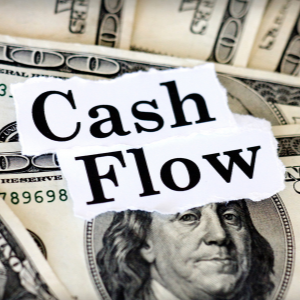
Understanding the Real Estate Market in North Carolina
To properly sell your North Carolina investment property while reducing tax impact, you must thoroughly understand the local real estate market. North Carolina provides many opportunities, from booming urban centers like Charlotte and Raleigh to gorgeous coastal towns and rural locations.
Each region has unique market factors that influence property values and buyer interest. Understanding current trends, such as population growth and regional economic advancements, might help explain demand swings.
Furthermore, keeping track of comparable transactions will help you set a competitive price for your house. Market variables, such as supply and demand ratios, are essential when planning your selling timing.
Knowledge of local tax regulations and incentives is also necessary; North Carolina offers a variety of tax breaks for real estate investors, which can be used to decrease capital gains taxes. Engaging with competent local real estate professionals or consultants who understand the market complexities and tax implications can help you improve your approach and maximize profit while reducing potential tax liabilities.
If you’d rather skip the hassle, Zack Buys Houses buys investment properties for cash in Charlotte, including cities of Asheville and Hendersonville. This allows you to avoid repairs, showings, and professional fees—a fast, stress-free sale on your terms.
How Economic Trends Impact the Real Estate Market in North Carolina
Economic changes shape the North Carolina real estate market, directly impacting investment property sales and tax tactics. As the economy changes, factors like interest rates, employment rates, and consumer confidence can substantially impact property values and buyer demand.

In North Carolina, a state known for its diverse economic landscape, understanding these trends is critical for investors trying to sell their homes efficiently while avoiding tax responsibilities. During periods of economic expansion, additional job possibilities and higher consumer spending can boost demand for real estate, potentially leading to higher property values and faster sales.
In contrast, economic downturns may decrease buyer interest and lengthen selling periods. Changes in government laws or tax incentives might also impact sellers’ finances.
By being updated about local and national economic conditions, investors can better time their sales and use tax-efficient tactics that align with current market dynamics in North Carolina’s real estate industry.
Timing Your Sale: Best Seasons to Sell Property in North Carolina
Timing your sale is critical for maximizing profits when selling your North Carolina investment property. Understanding the ideal seasons for property sales can substantially impact the sale price and the tax implications.
The spring and early summer months in North Carolina are often ideal for selling real estate. The mild weather stimulates more potential buyers to look into available houses, which can result in competitive offers and higher sale prices.
Furthermore, many families prefer to relocate before the new school year begins, and demand rises during these months. Strategically scheduling your sale during this peak season increases buyer interest and allows you to align with favorable market trends, potentially lowering capital gains tax by increasing your property’s valuation at closing.
However, it is critical to examine local market dynamics and economic issues that may impact specific regions of North Carolina, as these can also influence appropriate selling periods.
Choosing the Right Real Estate Professional in North Carolina
When selling an investment property in North Carolina, choosing the correct real estate professional is critical for maximizing sale potential and minimizing tax consequences. A qualified professional with experience in the North Carolina real estate market may provide vital information about local property trends, pricing techniques, and buyer preferences.
They should have a track record of successful regional sales and a thorough understanding of state-specific tax rules that affect investment properties. Experienced professionals can assist you in navigating the complexity of capital gains taxes and identifying options for tax deferral or reduction.
Selecting an agent who can negotiate confidently and secure the best possible price for your home while staying fully compliant with legal requirements is essential. Working with a professional familiar with North Carolina’s diverse markets, from fast-growing cities like Charlotte and Raleigh to its beautiful coastal regions, positions you to attract serious buyers quickly and handle any related tax considerations with ease. Understanding key questions, such as whether the seller can back out of a contract, also becomes easier when guided by an expert who knows the state’s regulations inside and out.
Preparing Your North Carolina Investment Property for Sale
When planning to sell your North Carolina investment property, focusing on measures that increase its appeal is critical while considering tax ramifications. Inspect your property for necessary repairs or modifications to raise its market value.
Investing in cosmetic changes, such as new paint and fixtures, can dramatically increase the property’s appeal to potential purchasers. Another helpful method is to stage the property correctly, which allows potential buyers to imagine themselves living there and therefore increases its desirability.
Additionally, obtaining all required financial paperwork and records about your investment property will make the process easier for purchasers and accountants, resulting in a smoother transaction. It’s also a good idea to contact a tax specialist familiar with the North Carolina real estate market to figure out how to reduce capital gains taxes when you sell.
Painstakingly preparing your investment property using these principles will set you up for a successful sale while efficiently managing the financial consequences.
Enhancing Curb Appeal for Better Marketability of Your North Carolina Home
Enhancing curb appeal is an essential method for increasing the marketability of your North Carolina investment property while minimizing tax implications. First impressions are important when selling real estate, and improving the external appearance of your NC property will attract more potential buyers, potentially leading to greater offers.
Begin by maintaining a well-kept lawn and clean landscaping; these components immediately indicate that the property is well-cared for. Consider fresh paint for the front door or replacing house numbers and light fixtures to create an appealing atmosphere.
Power washing driveways and pathways may make them look new, improving overall aesthetics. Planting native flowers or bushes also adds beauty and is consistent with the sustainability practices that today’s environmentally concerned purchasers value.
Investing in these inexpensive renovations will pique buyer interest and even speed up the sale process. This may help lower the holding costs and tax implications associated with long-term ownership of an investment property in North Carolina.
Top Tips for Staging Your Home for Potential Buyers in North Carolina
Staging your North Carolina investment property well will improve its appeal to potential buyers and increase your chances of a quick sale. Decluttering the room is essential; a clean, orderly home allows purchasers to imagine themselves living there.

Consider balancing the color palette by repainting walls in soft, inviting tones that appeal to a broad audience. Highlight your property’s distinctive qualities, particularly those that appeal to the local market, such as hardwood floors or a comfortable fireplace.
Maximize natural light and add ambient lighting to make each room well-lit. Curb appeal is essential for initial impressions, so keep the landscaping in good shape and consider adding seasonal plants for a warm welcome.
In North Carolina’s broad real estate market, promoting energy-efficient modifications such as contemporary HVAC systems can attract environmentally aware purchasers while potentially offering tax breaks. By meticulously setting your property to highlight its qualities and correspond with regional trends, you can boost its appeal and marketability while establishing the framework for favorable conditions.
Utilizing Professional Photography to Boost Your Listing’s Appeal
Professional photography is essential for selling your North Carolina investment property while reducing tax implications. High-quality photographs can considerably increase the appeal of your offering, attracting more potential buyers and ultimately resulting in a faster sale at a better price.
Professional photographers can capture your property’s best qualities by using lighting and composition techniques that make spaces appear inviting and expansive. In the competitive North Carolina real estate market, eye-catching images are critical for attracting attention to your property, particularly on online platforms where first impressions count.
Investing in quality photography increases your chances of generating higher interest and several offers, boosting the sale price and raising your profit margins. This strategy maximizes your return on investment and guarantees you take advantage of any relevant tax breaks connected to selling costs.
Making your property visually appealing with professionally taken images can set it apart from competing listings and ease the selling process.
Effective Marketing Strategies for Selling Property in North Carolina
Effective marketing methods are critical to maximizing your investment return while reducing the tax burden when selling a home in North Carolina. Begin by emphasizing your property’s distinguishing attributes that appeal primarily to North Carolina buyers, such as proximity to popular attractions or corporate hubs like Charlotte or Raleigh.
Use professional photography and virtual tours to build appealing online listings on sites such as Zillow and Realtor.com, ensuring your property stands out in a competitive market. Use social media marketing to reach a larger audience, specifically those interested in North Carolina’s lifestyle and amenities.
Working with local real estate professionals who understand the peculiarities of the North Carolina market can provide valuable insights into pricing tactics and buyer preferences, allowing you to position your property more successfully. Hosting open houses and attending local networking events can help potential buyers find investment properties in Asheville or Wilmington.
Focusing on these targeted marketing techniques can increase interest in your home while strategically managing tax implications through careful preparation and collaboration with tax professionals familiar with North Carolina real estate regulations.
Using Online Platforms to Sell Real Estate in NC Faster
Leveraging online platforms to market real estate in North Carolina can speed the sale and soften the tax bite on investment properties. Sellers reach a much larger pool of buyers by taking homes into digital marketplaces, raising the odds that an offer arrives quickly.
Websites like Zillow, Realtor.com, and Redfin grant broad exposure and let owners showcase listings with sharp photos and detailed narratives. At the same time, targeted ads on Facebook, Instagram, or LinkedIn draw in investors specifically searching for North Carolina real estate.
These tools increase visibility and facilitate rapid, direct communication between buyers and sellers, a key ingredient in striking terms that may lower capital gains taxes. Adding virtual tours and reviewing platform analytics enables sellers to fine-tune pricing, keep offers competitive, and remain mindful of tax-efficient strategies.
How to Price Your Investment Property Competitively in North Carolina
Setting the right price for your North Carolina investment property requires careful homework, so you attract serious buyers and still protect your return. Start by reviewing recent sales of similar homes in your area; doing so reveals current market momentum and gives you a benchmark for average sale prices.
Pay attention to differences in location, square footage, age, and upkeep, because these details strongly shape buyers’ willingness to pay. You should also note local job growth, migration patterns, and new amenities, since these economic shifts can lift or soften overall demand.
Partnering with a seasoned real estate professional adds valuable market commentary and exposes you to data tools that yield a price consistent with buyer expectations. You might adopt tactical pricing to spark swift interest, such as rounding slightly below comparable values or including a small closing-cost credit. If you’re considering alternatives to traditional sales, Exploring Sale-leaseback Options can provide additional flexibility while allowing you to stay in your home after the sale.
When you weigh these elements thoughtfully, you enhance your chances of a speedy sale and limit your exposure to higher capital gains tax.
Navigating Legal Requirements for Selling Real Estate in North Carolina
Knowing the legal steps in selling an investment property in North Carolina is essential for a smooth closing and controlling taxes. First, sellers must understand the state’s disclosure rules; to stay compliant, they must present the Residential Property and Owners Association Disclosure Statement so buyers do not accuse them of hiding defects. Second, sellers should review current transfer taxes, because even a modest fee can chip away at profits if overlooked.
A seasoned real estate attorney can explain these duties and draft documents in ways that preserve available tax breaks. Sellers also must check local zoning ordinances and any necessary permits; ignorance here can lead to fines or a forced rollback of the sale.
A knowledgeable professional familiar with North Carolina’s multiple listing taxes can offer sound advice on pricing, craft terms that meet state rules, and, where eligible, develop a plan that keeps capital gains exposure to a minimum.
By staying informed about these matters and following the guidance of the right professionals, sellers can navigate the complexities of the North Carolina market with confidence and efficiency.
The Role of Inspections and Appraisals in North Carolina Real Estate Sales
Inspections and appraisals in North Carolina real estate play vital roles in selling an investment property and curbing tax exposure. A detailed inspection reveals hidden issues that could affect the home’s market value.
Fixing those problems before the property hits the market often leads to a smoother transaction and can attract higher offers from buyers. An independent appraisal then provides an unbiased estimate of the home’s worth, serving as a guide for setting the asking price.
That way, you avoid the costly mistake of listing too low or too high, which can drain profits. In addition, the written findings from the inspection and the appraisal give you solid facts during negotiations, helping to explain needed repairs or justifying the price.
Because North Carolina counties set their own rules, knowing local inspection and appraisal standards keeps you compliant and shields you from surprise tax bills after closing. When used wisely, these evaluations protect your investment and enhance your bottom line at sale.
Handling Offers and Negotiations on Your North Carolina Investment Property
Applying fresh strategies helps you pocket more cash and keep taxes in check when offers come in on your North Carolina rental or flip. Start by reading each bid closely, studying the price, contingencies, and special requests that could eat into your bottom line.
A knowledgeable local expert can eliminate market noise and negotiate terms you can live with. If you plan to exchange the proceeds for another asset, mention a 1031 swap so the capital gains hit pauses until the next sale.
Clear, calm talks with buyers let you spotlight the property yet remain flexible enough to weigh practical counterproposals. At the same time, loop in your tax advisor about state rules and incentives that might tweak your liability at closing.
By steering the offer stream with smarts and planning, you can lift profit and cut tax pain on every North Carolina deal.
Understanding Closing Costs When Selling a Property in North Carolina
Knowing what closing costs you will face when you sell an investment property in North Carolina is crucial because these expenses can affect your net gain and tax bill. Closing costs cover several mandatory fees that must be settled before ownership officially passes.
Standard charges include attorney fees, title searches, recording fees, and assorted settlement service costs. Sellers usually share part of the deed transfer tax and may also need to reimburse the buyer for any prorated property taxes already paid.
Knowing these charges in advance allows you to budget accurately and avoid last-minute financial strain. A careful review of every item on the closing statement may reveal fees you can question or costs you may negotiate down, ultimately lightening your tax load.
Working with an experienced real estate lawyer or a North Carolina tax adviser can help you navigate state-specific rules, streamline the sale, and protect your profits from excess tax exposure. This knowledge is especially valuable in the fast-paced North Carolina market, where sellers often need quick decisions and clear plans.
Tax Implications of Selling an Investment Property in North Carolina

Knowing how much tax you’ll owe when you sell an investment property in North Carolina is vital for keeping as much profit as possible. The most significant expense is capital-gains tax, which is charged on the money you earn above what you paid.
How long you have held the asset makes a real difference: gains on property owned one year or less are taxed at the same rate as your paycheck, while gains on property held longer enjoy a lower, preferential rate. On top of that, North Carolina adds its tax on those same gains.
There is also depreciation-recapture tax, which effectively undoes the deductions you claimed each year and increases your liability. You can postpone almost all these taxes by using a 1031 exchange, which lets you roll sale proceeds into a similar property and defer the payment until much later.
Before closing, consult an accountant or tax attorney who knows both federal and North Carolina rules. Their advice can save you money and give you the confidence to move forward.
Moving Smartly from Closing a Sale to Fresh Investments
Once you close the sale on your North Carolina rental or flip, the next step is to guide those funds into a new deal without triggering hefty taxes. The classic route is the Section 1031 exchange, which lets you roll over the sale proceeds into another like-kind asset and postpone the capital gains bill.
That deferral keeps cash working instead of sitting idle and gives you room to diversify, upgrade to larger projects, or enter new markets. You should also look at opportunity zones; parking capital there not only gives you the normal 1031 advantages but may also slash taxes further when you finally exit.
Still, every move must meet IRS rules, so teaming up with a real estate-savvy CPA or attorney before signing papers is far wiser than trying to fix mistakes post-sale. Follow solid planning and expert advice, and your profits will keep building toward the long-term goals you set when you first bought the property.
How to Avoid Capital Gains Tax in North Carolina?
Knowing how to slant the tax code in your favor when unloading a North Carolina investment house is vital for preserving profit. The first-best backstop remains the 1031 exchange: funneling sale proceeds into a comparable purchase, ideally identified well in advance, you postpone most, if not all, of the capital gains tax.
If the property has been your principal residence for at least two of the past five years, you might qualify for the sale-rule break that wipes out $250,000 of gain for singles ($500,000 for married couples). You can also offset profit by deliberately selling other assets at a loss so those lower figures net against any real-estate windfall.
Another approach is to hold the house long enough that the profit falls under long-term rates, usually friendlier than short-term ones. Working with a tax pro who knows North Carolina’s rules can show you which moves fit your situation and keep you on the right side of the law.
How Much Do You Have to Put Down on an Investment Property in North Carolina?

The down payment size matters a great deal when looking at an income-producing property in North Carolina. While most lenders will ask for 20 percent, the exact figure may budge up or down based on your credit, reserves, and the institution’s policies.
Savvy investors know that putting down a bigger deposit lowers the loan-to-value ratio and can earn a better interest rate, which lifts profits over time. Up-front cash also trims the monthly mortgage, giving the owner extra breathing room in the cash flow.
Thoughtful planning about that first check, especially how big it will be, matters for anyone trying to keep taxes low when buying and later selling real estate in North Carolina. Seasoned professionals with tax advisers can offer tailored strategies that maximize what you pocket at both ends of the deal.
Do You Need an Attorney to Sell Land in North Carolina?
If you are unloading an investment parcel or any other property in North Carolina, bringing on a lawyer is often prudent to smooth the sale and trim tax hits. While state law does not make legal counsel mandatory when land changes hands, their experience can prove invaluable.
A skilled real estate attorney guides you through the twists of local property and tax rules. They draft and review contracts, confirm that every state requirement is met, and flag any tax concerns that could affect your profits.
Your legal advisor can also map out a sale structure that lowers, within the law, the capital-gains tax you must pay. With that guidance, you will steer through North Carolina’s land-sale rules, protect your earnings, and leave the closing table with more cash.
How to Avoid Capital Gains Tax on Real Estate Investment Property?
Knowing how to blunt capital-gains tax lets you pocket more profit when you sell an investment property in North Carolina. One popular tactic is the Section 1031 exchange, which lets you park the sale proceeds into a similar property and push the tax bill down the road.
You can keep upgrading your holdings without a big tax hit as long as you meet the required timelines and rules in the Internal Revenue Code. Holding a property for over twelve months also helps; gains on long-term assets are taxed lower than profits on assets sold sooner.
Investors might explore ways to limit depreciation recapture or convert the rental asset into their principal residence for up to twenty-four months; either move could trigger a partial capital-gains exclusion. Collaborating with a tax professional who knows North Carolina’s rules and federal law allows investors to craft tailored plans that trim taxes and boost profits on property sales.
Looking to sell your North Carolina investment property fast? Zack Buys Houses buys properties for cash in Charlotte—no repairs, professionals, or waiting. Get a fair offer and close on your terms, hassle-free. Contact us today at (704) 769-0141 to learn about your offer!
Helpful North Carolina Blog Articles
- Selling Your Investment Property in North Carolina
- Selling Your North Carolina Home With An Existing Mortgage
- How To Successfully Sell A House With Tenants In North Carolina
- Appraisal Repairs in NC: How They Impact Your Home Sale
- Documents Required to Sell a House in North Carolina
- Closing Costs Without a Realtor in North Carolina
- Guide To Filing A Quitclaim Deed For Real Estate In North Carolina
- Real Estate Division In North Carolina Divorce Cases
- Selling Your North Carolina Home Without A Real Estate Agent
- Who Pays the HOA Fees at Closing in North Carolina
- How to Sell a Condemned House in North Carolina
- How to Sell a House As-Is in North Carolina
- Does a Seller Pay Closing Costs in North Carolina
- Can You Sell a House That Failed Inspection in North Carolina

| TAXPAYERS | RENTAL PROPERTY | RENTAL | RENTAL INCOME | RENTAL PROPERTIES | LONG TERM CAPITAL GAINS TAX |
| DEPRECIATE | ASSET | TENANT | RENTAL HOME | LANDLORDS | REALTORS |
| LEASE | TENANCY | LEASE AGREEMENTS | INTERNAL REVENUE SERVICE | TAX RATE | TAX RELIEF |
| EXEMPTION | TAX EXEMPTION | REAL ESTATE INVESTMENTS | REAL ESTATE INVESTING | RISKS | INCOME TAX |
| INCOME TAX RATE | GIFT | TAX-LOSS HARVESTING | WASH SALE RULE | PRIVACY | HOMEOWNERS |
| HOME OWNERSHIP | LEGAL COUNSEL | LAWYERS | TAXABLE INCOME | TAX-DEDUCTIBLE | |
| TAX DEDUCTIONS | INSURANCE | TAX RETURN | REAL ESTATE TAX | ESTATE PLANNING | COST BASIS |
| TAXABLE GAIN | TAX BRACKET | MEDIAN HOME PRICE | REAL ESTATE PRICES | LEGAL FEES | USE TAX |
| U.S. | SALARY | ROOF | OPTIONS | MOUNTAIN | KITCHEN |
| TAX YEAR | COPYRIGHT | COMPANY | CARY | CARY, NC | CAPITAL ASSET |
| BRACKET | NET INVESTMENT INCOME TAX | A RENTAL PROPERTY | THE PROPERTY FOR | OF THE PROPERTY | CAPITAL GAINS TAX RATE |
| GAINS TAX ON A |
